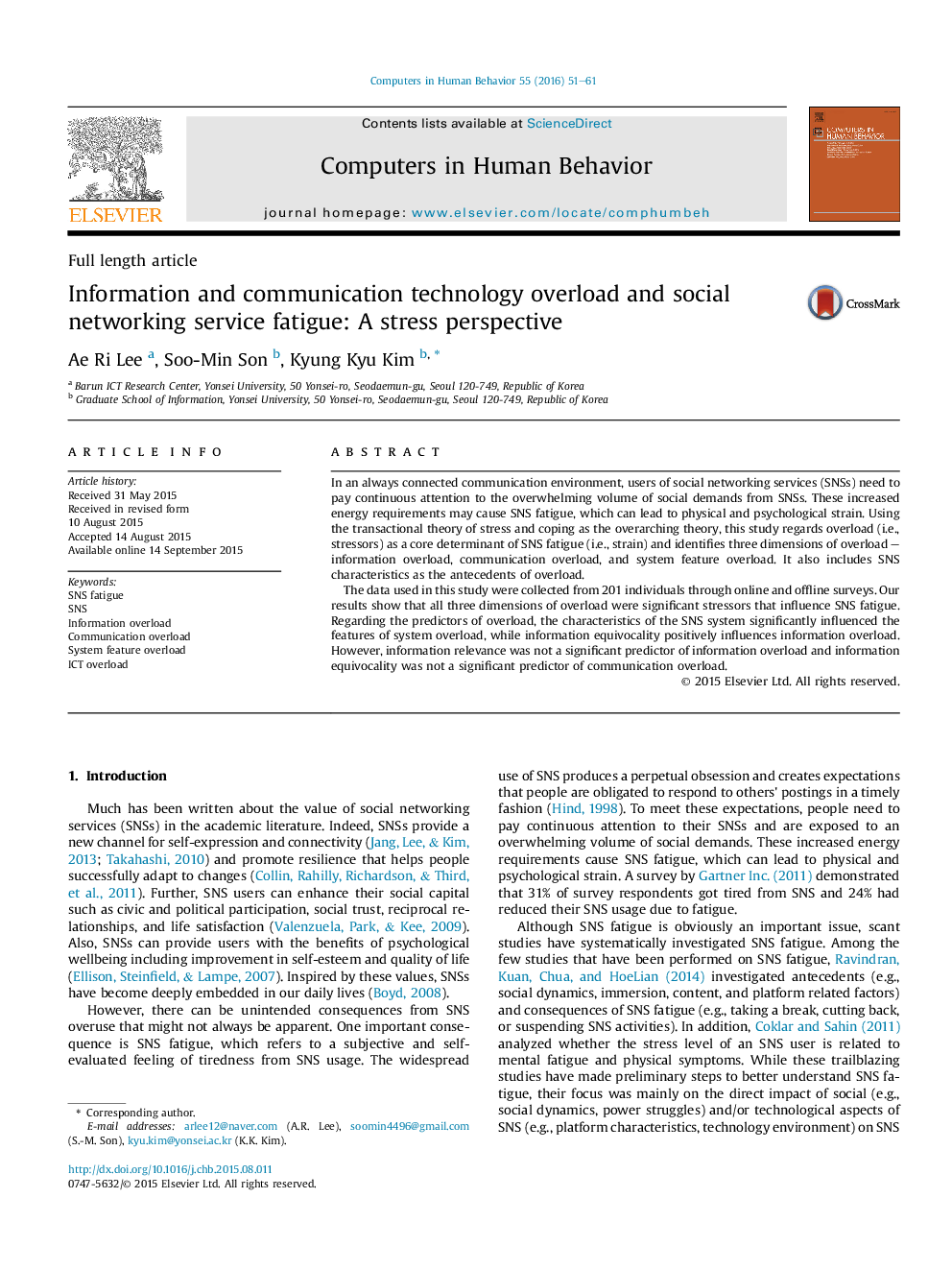| کد مقاله | کد نشریه | سال انتشار | مقاله انگلیسی | نسخه تمام متن |
|---|---|---|---|---|
| 350151 | 618432 | 2016 | 11 صفحه PDF | دانلود رایگان |
• We examine SNS fatigue as an outcome of the stress process.
• Three dimensions of overload are significant stressors influencing SNS fatigue.
• Information and system characteristics of SNSs are determinants of overload.
In an always connected communication environment, users of social networking services (SNSs) need to pay continuous attention to the overwhelming volume of social demands from SNSs. These increased energy requirements may cause SNS fatigue, which can lead to physical and psychological strain. Using the transactional theory of stress and coping as the overarching theory, this study regards overload (i.e., stressors) as a core determinant of SNS fatigue (i.e., strain) and identifies three dimensions of overload – information overload, communication overload, and system feature overload. It also includes SNS characteristics as the antecedents of overload.The data used in this study were collected from 201 individuals through online and offline surveys. Our results show that all three dimensions of overload were significant stressors that influence SNS fatigue. Regarding the predictors of overload, the characteristics of the SNS system significantly influenced the features of system overload, while information equivocality positively influences information overload. However, information relevance was not a significant predictor of information overload and information equivocality was not a significant predictor of communication overload.
Journal: Computers in Human Behavior - Volume 55, Part A, February 2016, Pages 51–61
